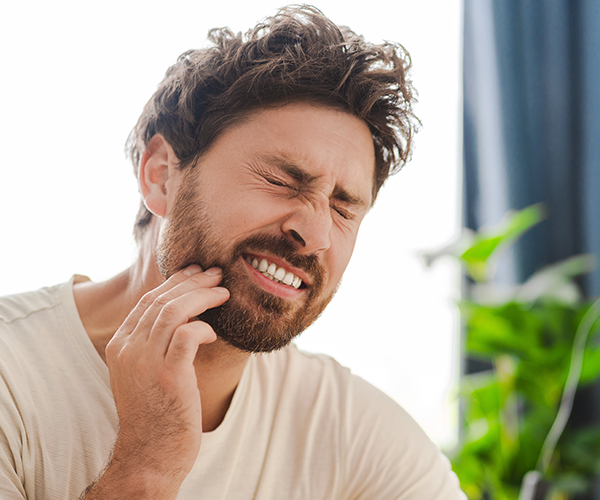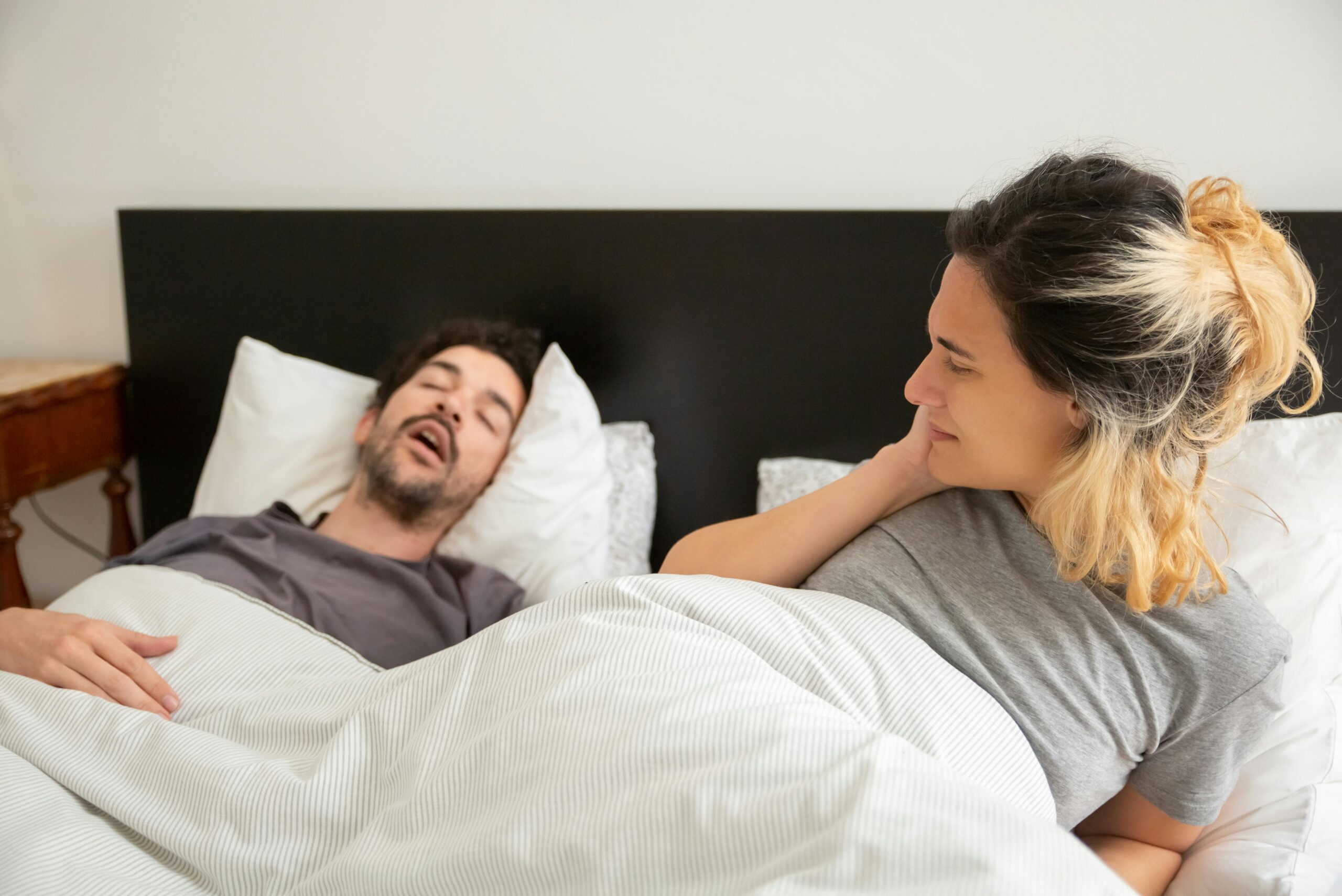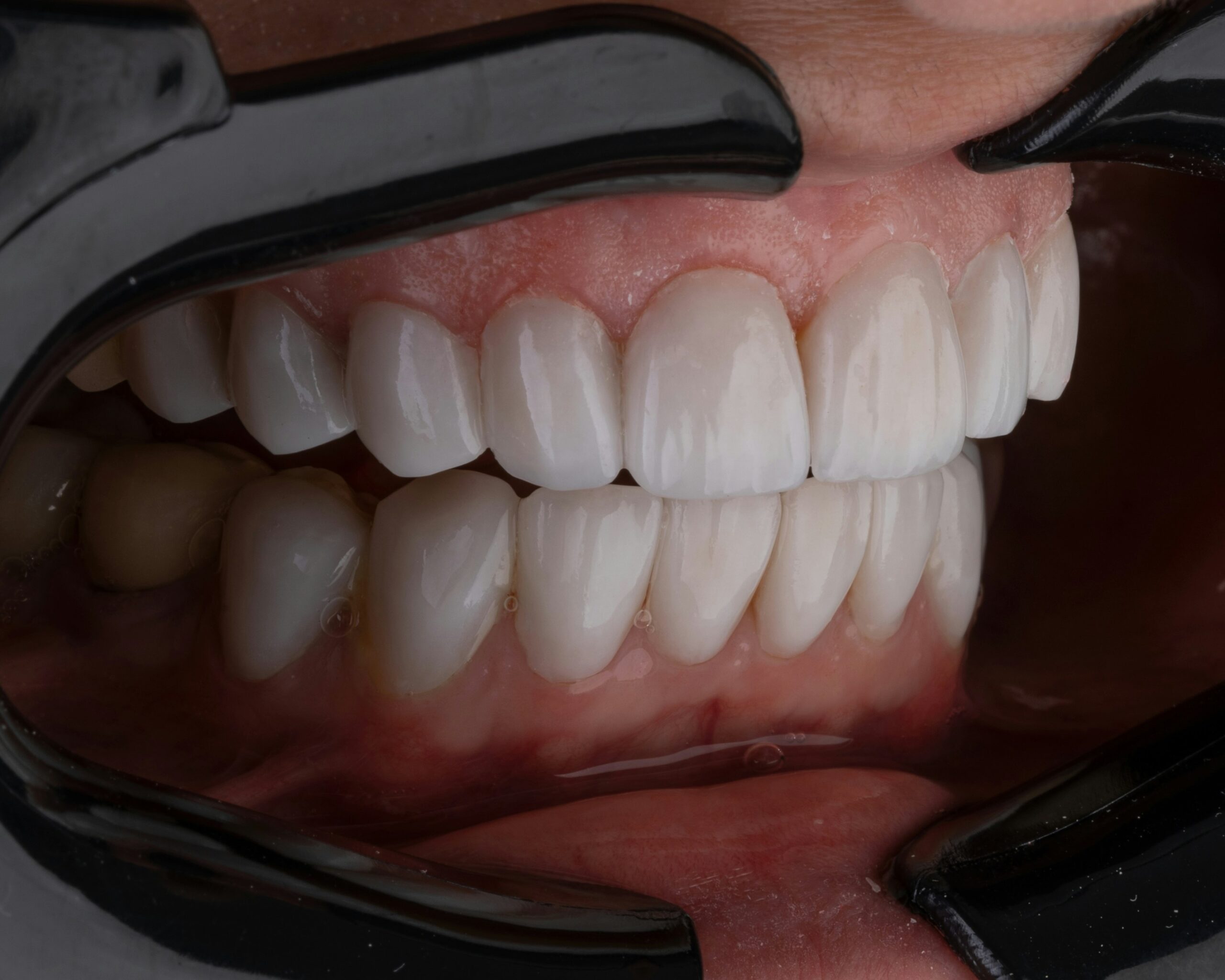Involuntary grinding, clenching, and gnashing of the teeth can cause issues with your teeth and jaw. This condition usually affects people when they are sleeping.

Ever wake up with a sore jaw or a headache that just won’t quit? You might be clenching your jaw or grinding your teeth in your sleep, a condition known as bruxism.
It’s estimated that 10% of Australians experience unconscious jaw clenching usually during sleep, but it can also happen during the day.
Many people don’t even realise they’re doing it until a partner hears the grinding or they start experiencing painful symptoms. If left unchecked, jaw clenching can wear down your teeth and cause significant damage to both teeth and jaw joints.
If you regularly clench your jaw or grind your teeth, here are some common symptoms you may experience:
A dull headache or ear pain
Jaw clenching often causes a persistent, dull headache due to constant tension in the jaw and temple muscles. This tightness can also radiate toward the ears, making everyday actions like chewing or yawning uncomfortable.
Sore jaw muscles or joint pain while eating
Repetitive grinding puts strain on the jaw muscles and joints, leading to soreness or tenderness. This discomfort tends to be most noticeable during meals or conversations when those already-fatigued muscles are in use.
Aching or stiffness in the face and temples upon waking
People who clench their jaws in their sleep often wake with a sore, stiff feeling across their face and temples. Overnight tension keeps facial muscles in a clenched position, leading to morning discomfort.
Perhaps it’s something you’ve learned to live with, but jaw clenching and teeth grinding can have long-term effects on your dental health if untreated, such as:
Aching teeth, particularly after waking up
Waking up with aching teeth is a common sign of jaw clenching, as nighttime grinding puts excessive pressure on the teeth. This pressure can cause soreness that lingers, making it uncomfortable to talk or eat.
Generalised sensitive teeth
Repeated clenching and grinding can wear down enamel, leading to increased sensitivity. Hot, cold, or sweet foods and drinks may start to cause sharp discomfort over time.
Cracked or chipped tooth enamel
The excessive force of jaw clenching can create microscopic cracks and chips in your enamel. These tiny imperfections weaken your teeth and can build up over time.
Fractured, chipped, or loose teeth
In more severe cases, grinding can lead to noticeable fractures, chips, or even loosen teeth—often requiring dental treatment to restore their structure and function.
Multiple cracked or broken fillings
Not only are natural teeth affected, but fillings can also crack or break from repeated clenching. This can mean more frequent dental repairs and increased long-term maintenance.

Jaw clenching or teeth grinding can be triggered by various factors but it’s most commonly linked to stress and anxiety.
People who experience stress on a daily basis can sometimes clench their jaws without even realising it or grind their teeth unconsciously at night. Snoring or sleep apnea is another common culprit, as our bodies might respond to disrupted sleep by grinding teeth.
Some medications, especially antidepressants, can also cause this as a side effect. Knowing what triggers your jaw clenching can help you manage it or and reduce it.

While there is no cure to completely stop involuntary jaw clenching or teeth grinding, there are ways to manage it or reduce the impact it has on your dental health.
Here are some areas you can look into where relevant:
Managing stress and anxiety is crucial for reducing jaw clenching and teeth grinding. Techniques such as mindfulness meditation, deep breathing exercises, yoga, and regular physical activity can help alleviate tension. Additionally, seeking support from a therapist or counsellor can provide strategies to manage anxiety and stress more effectively, which in turn can reduce the occurrence of bruxism.
Occlusal splints or mouthguards to wear at night (also known as nightguards), are custom-made dental devices designed to protect your teeth from the damage caused by grinding and clenching. Worn at night, these guards create a barrier between the upper and lower teeth, preventing them from grinding against each other. They can also help redistribute the force exerted by clenching, reducing strain on the jaw muscles and joints.
If misaligned teeth or an improper bite are contributing to teeth grinding, dental correction may be necessary. This can involve procedures such as reshaping the chewing surfaces of the teeth, orthodontic treatments like braces, or the use of dental crowns and bridges to correct the alignment. By ensuring your teeth fit together properly, dental corrections can help alleviate the stress that leads to clenching and grinding.
In some cases, medications may be prescribed to help manage bruxism. Muscle relaxants can be taken before bedtime to reduce muscle tension and prevent clenching during sleep. If anxiety or stress is a significant factor, anti-anxiety medications or antidepressants might be recommended by a specialist.
Understanding and managing jaw clenching and teeth grinding is crucial for maintaining your dental health and overall well-being.
If you suspect you’re dealing with these issues, don’t wait to seek help. With solutions such as custom mouthguards designed to protect your teeth and reduce discomfort from teeth grinding, you can get back your sleep and peace of mind.
Jaw clenching, teeth grinding, or bruxism, is diagnosed by a dentist through checking for signs of wear on your teeth and tenderness in your jaw muscles. They may also recommend a sleep study to see if it occurs during sleep.
Prevention involves managing stress and anxiety, avoiding stimulants like caffeine and alcohol, and maintaining good sleep hygiene. Wearing a custom night guard also protects your teeth from grinding.
Yes, jaw clenching is common in children, especially during sleep, but many outgrow it. Consult a dentist if your child grinds their teeth or complains of related discomfort.
See a dentist if you have persistent jaw pain, headaches, or worn teeth, or if your partner hears you grinding your teeth at night. Early intervention can prevent serious dental issues and relieve discomfort.
Yes, jaw clenching can be linked to sleep apnea, anxiety disorders, and temporomandibular joint (TMJ) disorders. Addressing these underlying conditions can help manage bruxism.
A nightguard creates a barrier between your upper and lower teeth to prevent grinding and protect your teeth. It also reduces muscle strain, leading to less jaw pain and fewer headaches. Making a custom nightguard is best for your overall comfort and dental health.
An occlusal splint treats TMJ disorders and severe jaw clenching by aligning the jaw, while a night guard mainly prevents teeth grinding during sleep. Both protect your teeth, but occlusal splints also address jaw alignment.
Yes, gentle jaw stretches, massages, and good posture can help relax and strengthen your jaw muscles. Relaxation techniques like deep breathing and mindfulness can also reduce muscle tension and stress.